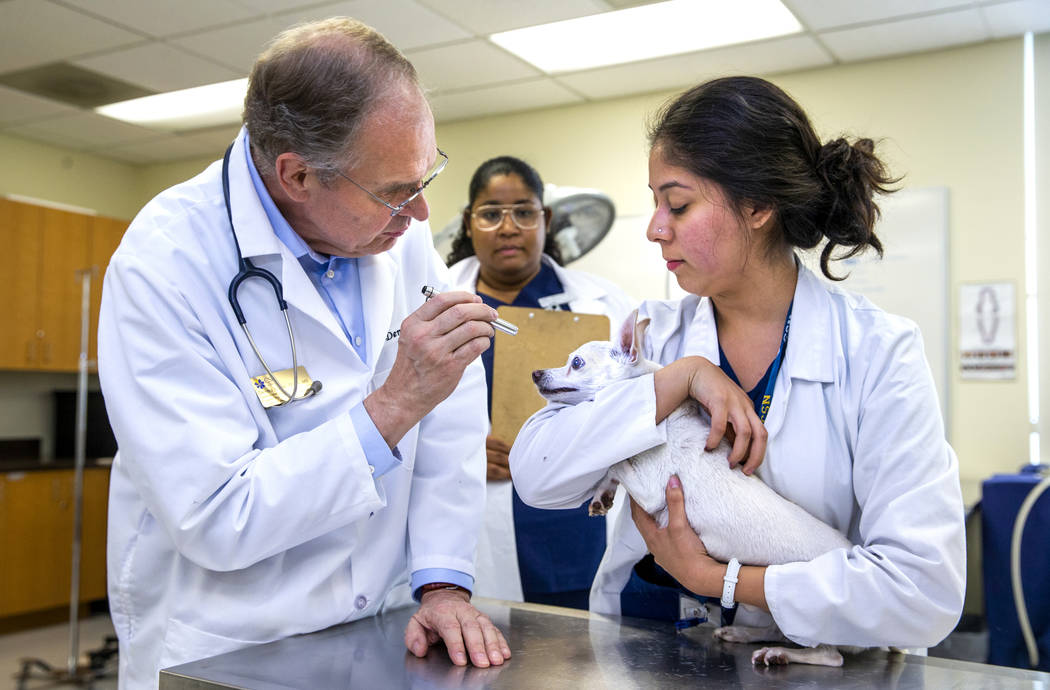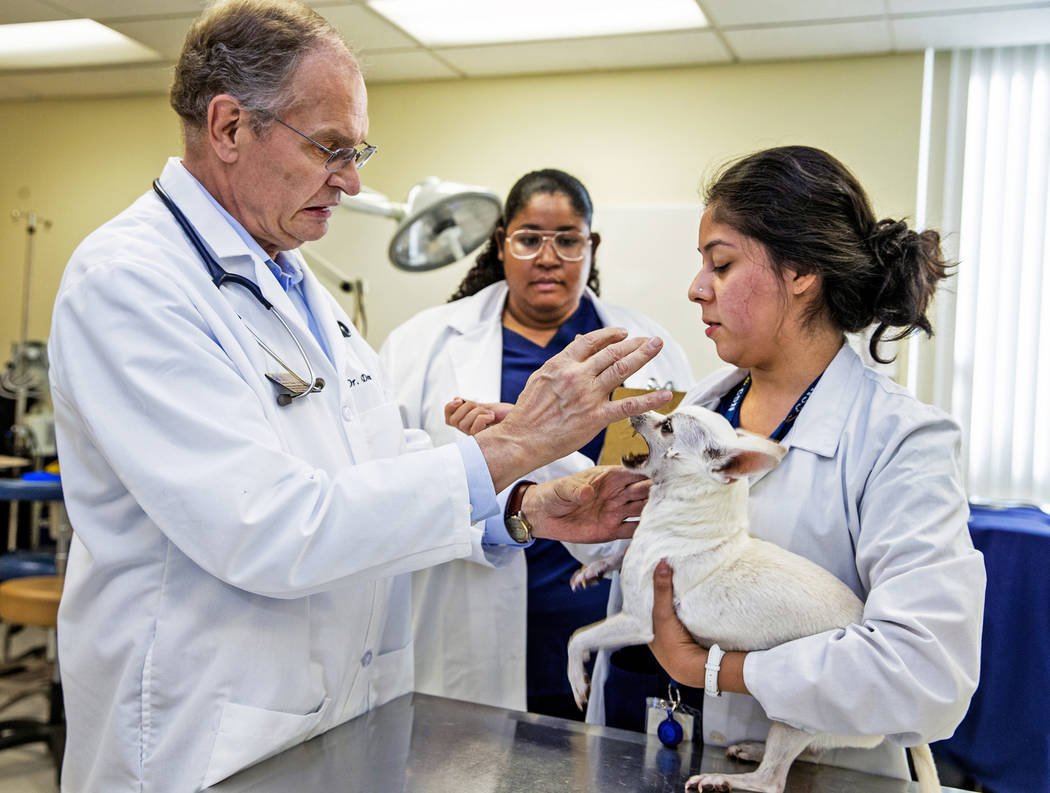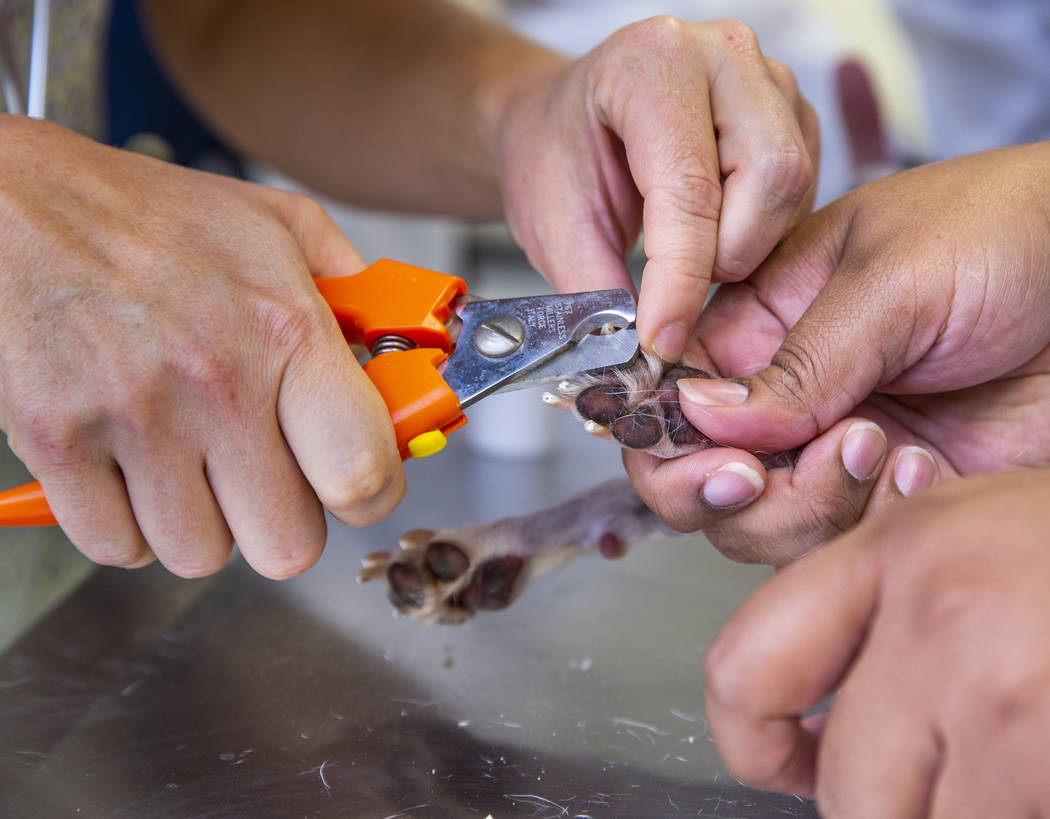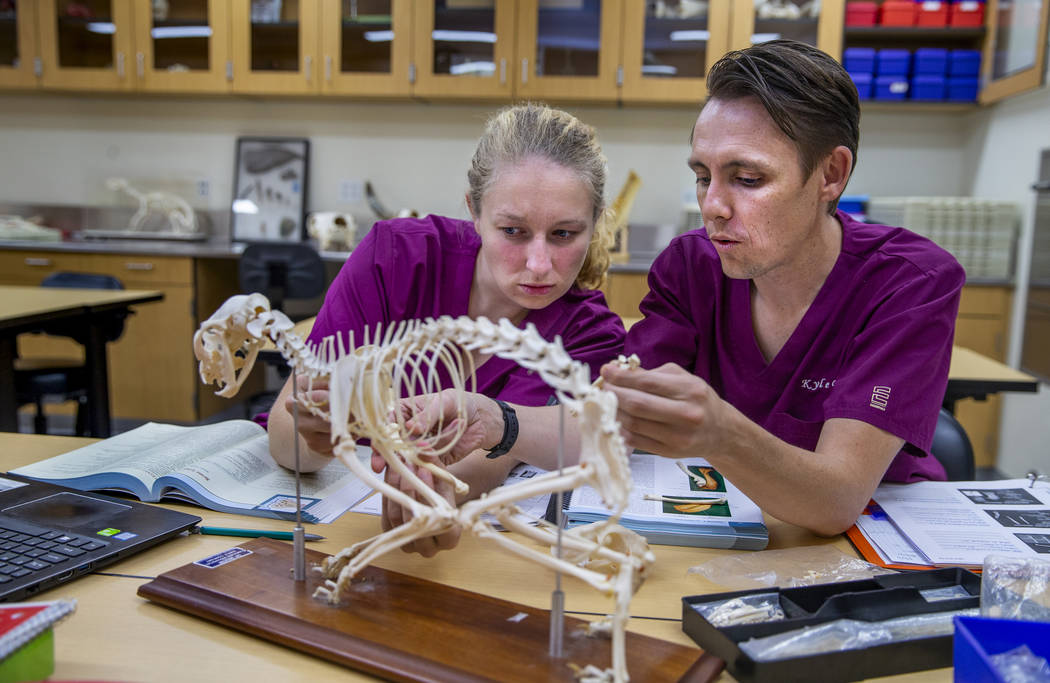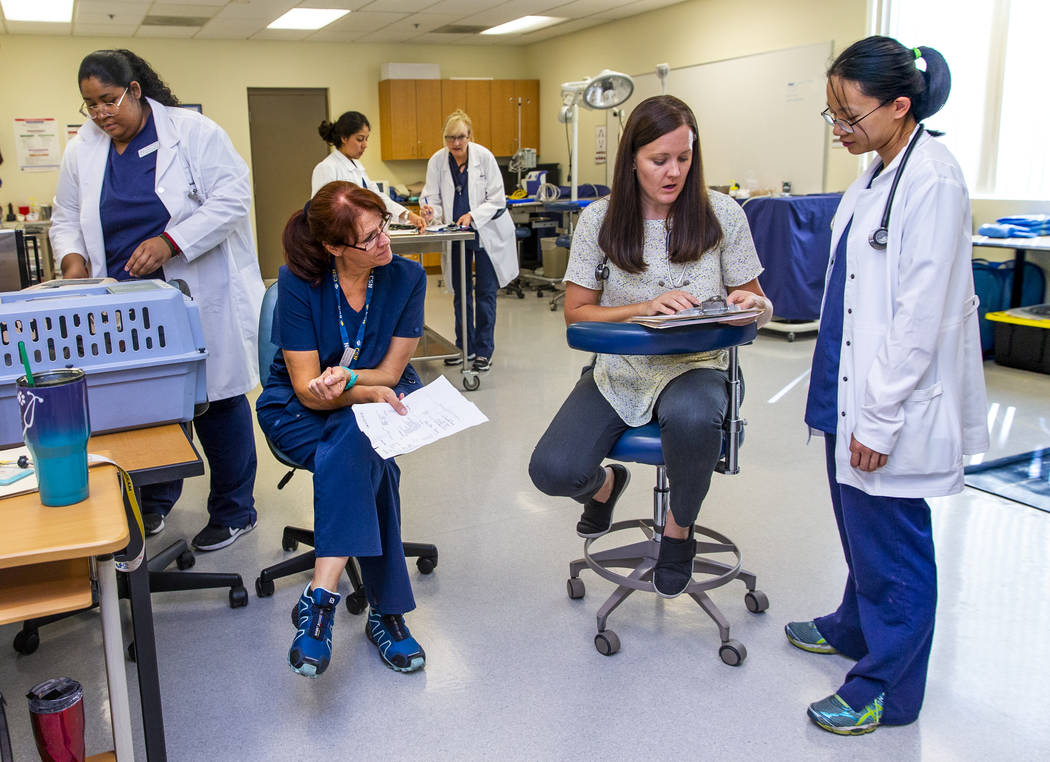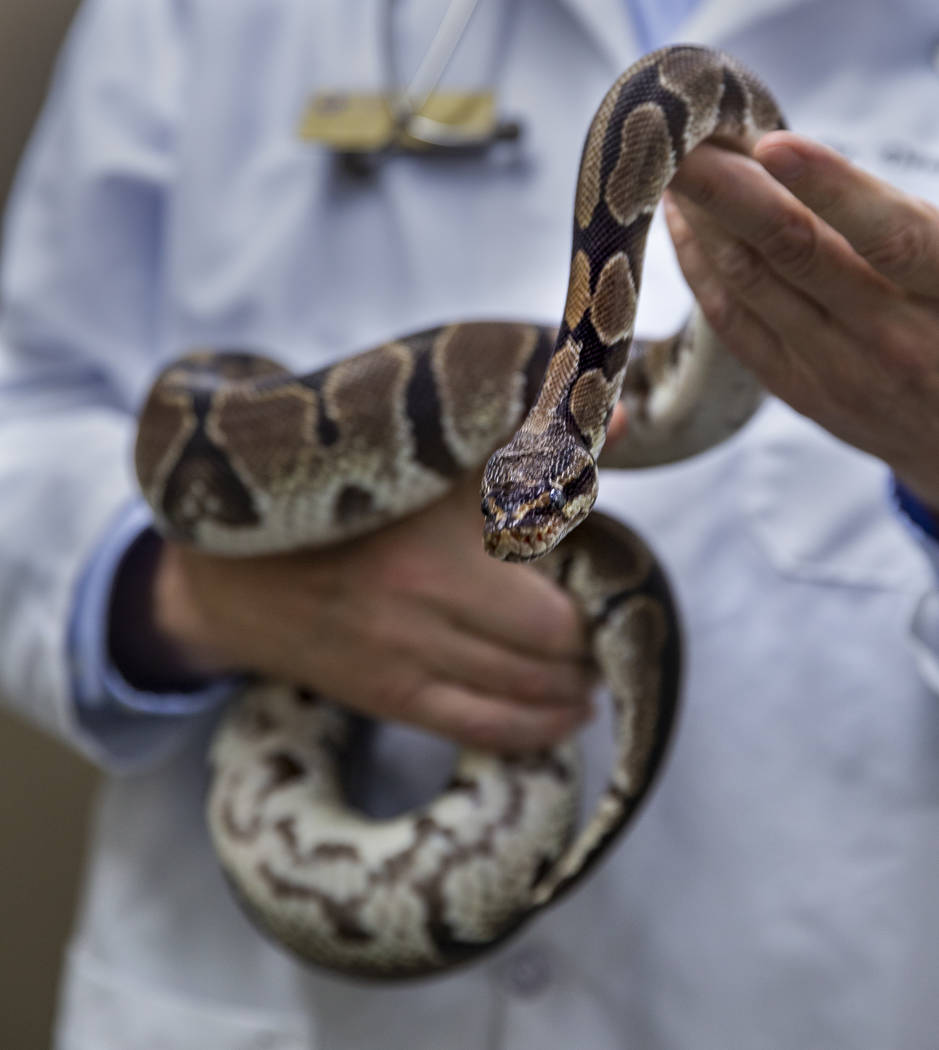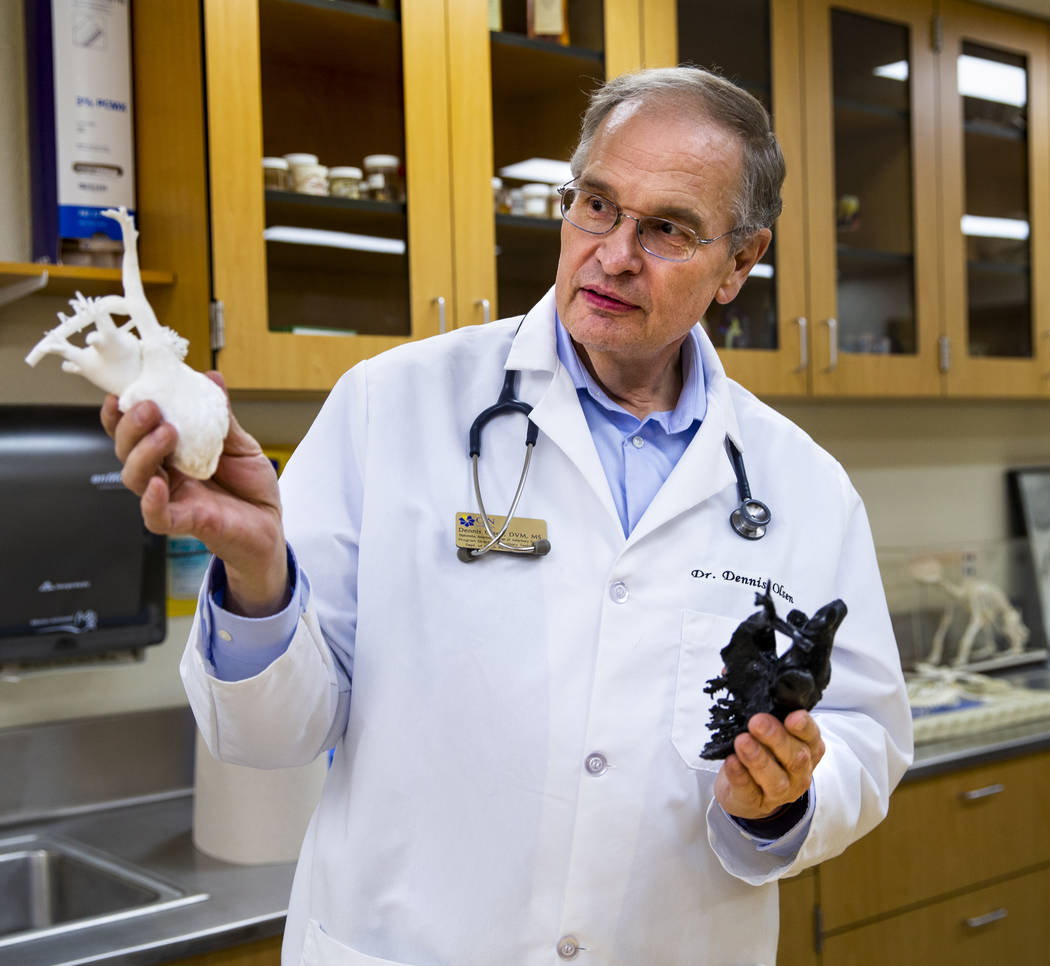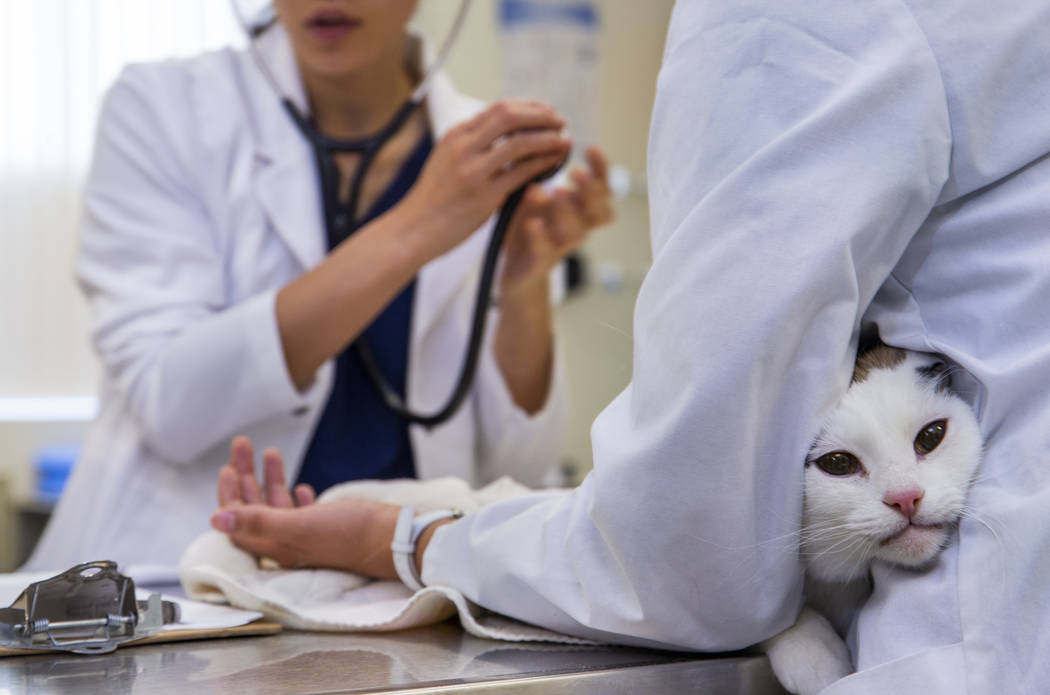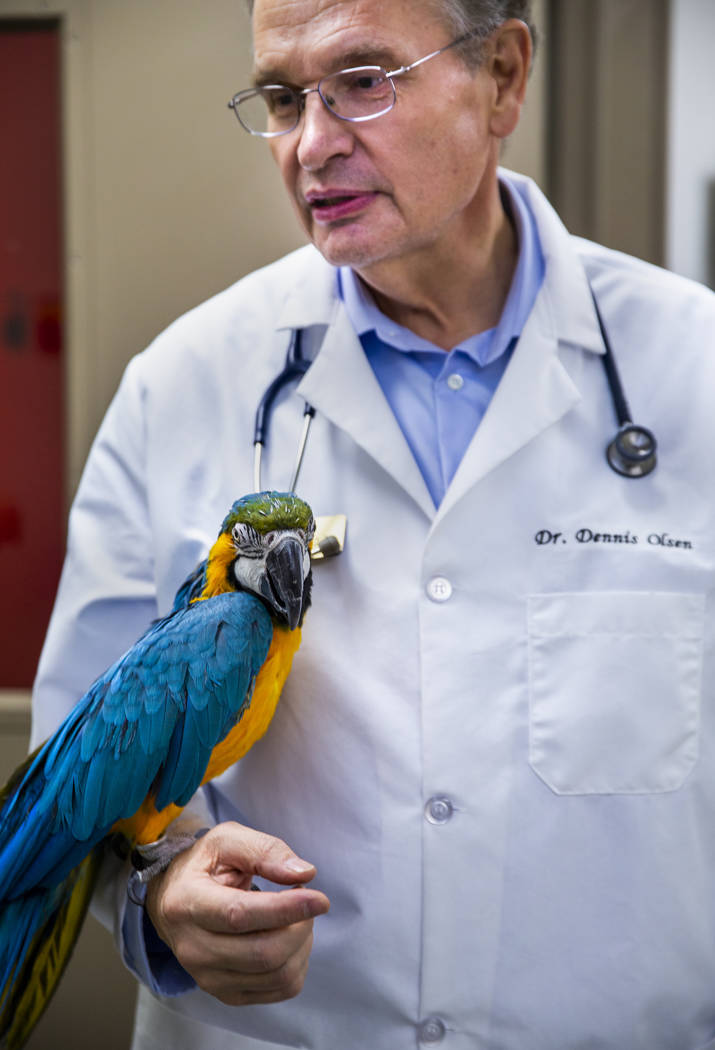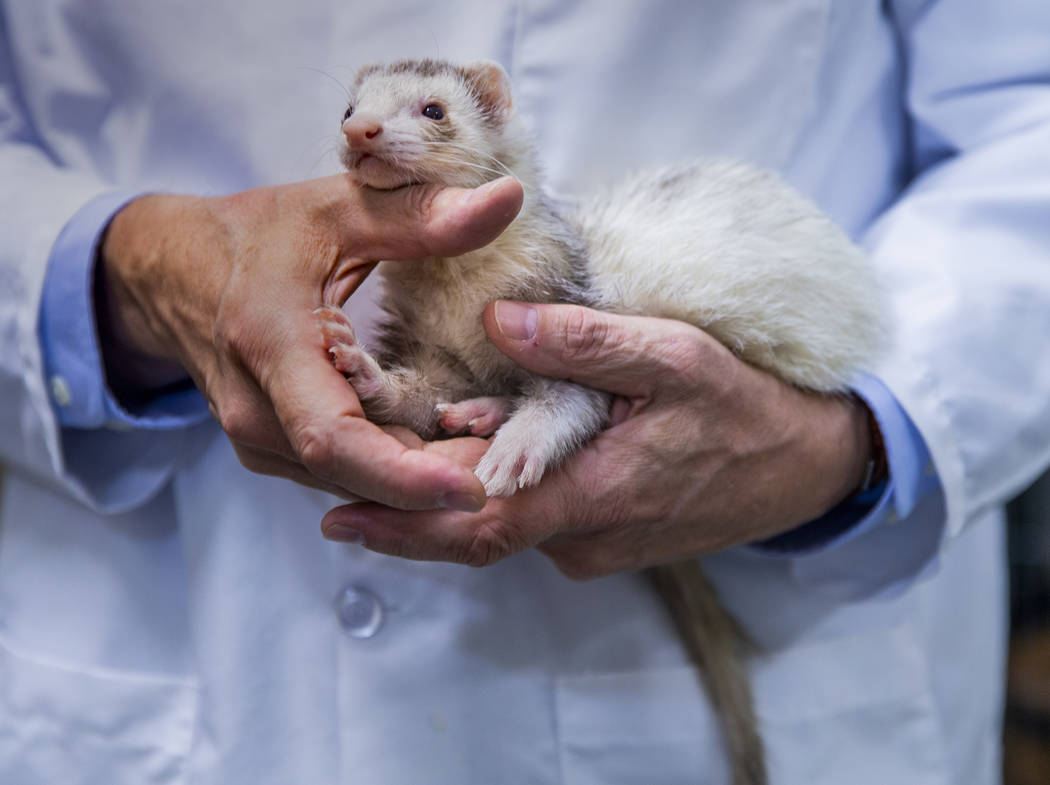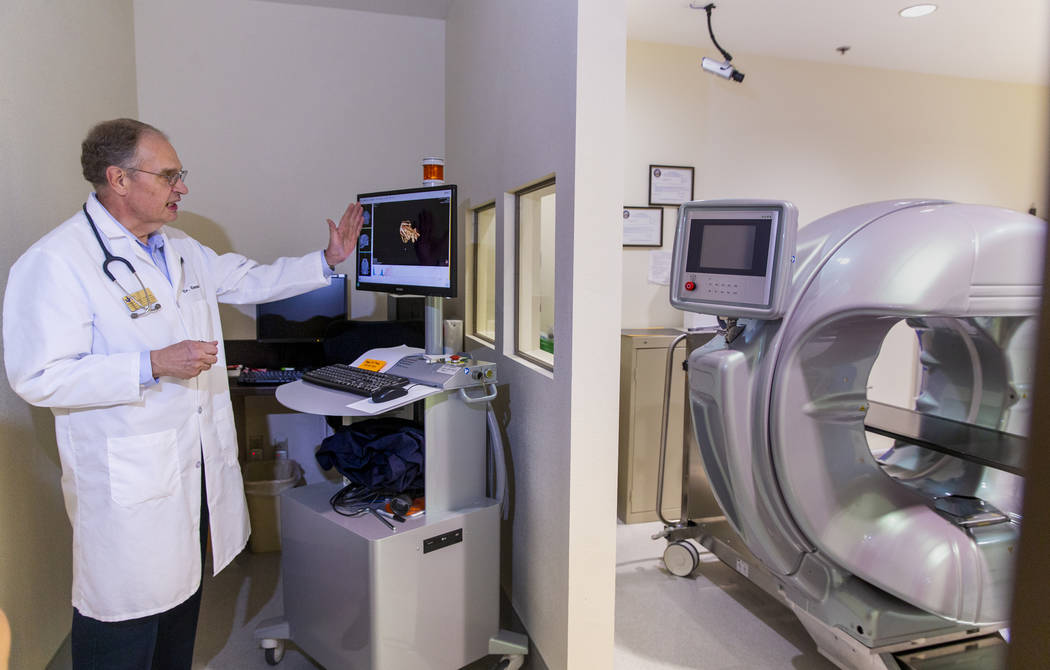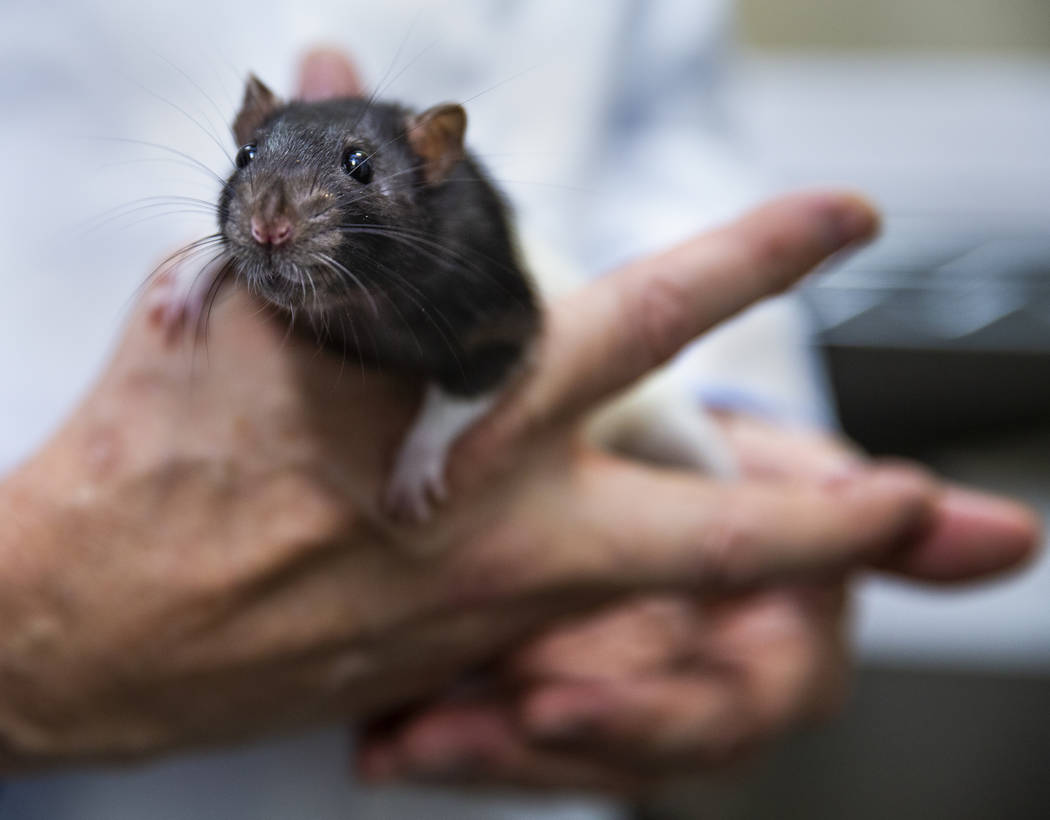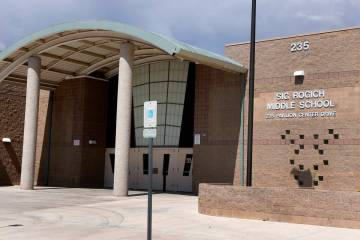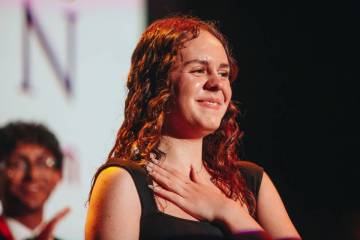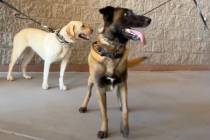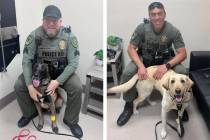CSN changes veterinary tech program name to reflect growing job
When the sharks at Mandalay Bay need medical attention, the first person making a house call might be a College of Southern Nevada student.
Once known as vet techs, these students are now on a path to becoming veterinary nurses as CSN joins other institutions nationwide in a push to define and expand the profession.
This year, the name of the program was changed to better reflect what students will do after graduation, according to Dennis Olsen, a veterinary surgeon and the head of the CSN program. Charged not only with performing initial examinations but also with brushing teeth, clipping nails and taking blood, veterinary nurses do as much as — or maybe even more than — nurses do for humans, Olsen said.
“Doctors do three things: surgery, diagnosing disease and prescribing medications. The nurses do everything else,” Olsen said. “But when you hear tech, you think it’s someone coming by to fix your computer.”
CSN’s two-year program is one of only two such public programs in Nevada, with sister school Truckee Meadows Community College offering the other. Students who complete the program go on to take a national exam and a statewide licensing test before they can begin work.
It’s in these statewide tests that the National Association of Veterinary Technicians in America is pushing for more uniformity. The organization hopes to create a single title, registered veterinary nurse, with its own credentialing requirements and defined duties, which currently can vary widely state by state, according to the American Veterinary Medical Association.
In Nevada, the two programs can’t keep up with the demand for qualified professionals, according to Aubree Englert, a professor in CSN’s program and a veterinary nurse herself.
Both pet-loving millennials and their empty-nester parents are behind the demand for top-quality animal care, which includes trained veterinary nurses, who are often the first point of contact between a clinic and its clients. Also in high demand is specialty care, like CT scans, that might have been unthinkable for pets decades ago, Englert said.
“As people take better care of themselves, they also take better care of their animals,” Englert said.
At CSN, students learn in the classroom and see real-life patients in a working clinic that serves campus community members’ pets as well as animals from local rescue organizations.
Cats, dogs, horses and cows are the most common patients, but students also take care of a resident ball python named Ruby and a teenage blue-and-gold macaw named Lulu. Olsen himself has performed surgery on a tarantula, a wallaby with a broken leg and a snake performer named Mr. Squeeze.
For freshman Jessica Davis, the program is her 3-year-old self’s dream come true. After CSN, she’d like to work as a veterinary nurse as she pursues further education to become a veterinarian, and later work for Veterinarians Without Borders.
“I wanted to take advantage of what we have here at CSN,” Davis said.
Contact Aleksandra Appleton at aappleton@reviewjournal.com or 702-383-0218. Follow @aleksappleton on Twitter.



